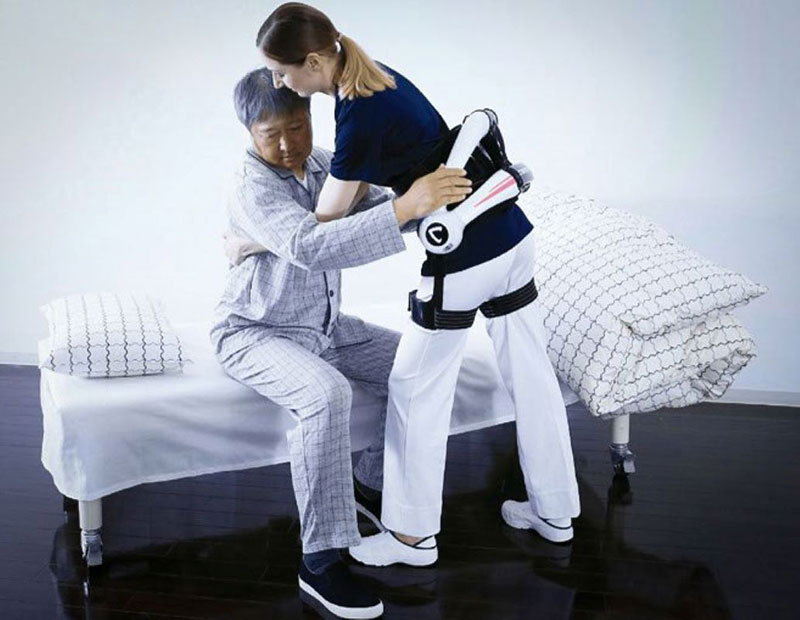Digital technology can help people live healthy, independent lives and enable health and social care services to be more effective, personalized and efficient.
Read more Exoskeletons Are Now Reality – Helping to Combat Worker Fatigue and Injury
Robots which help carers to lift people without extra assistance are among dozens of innovations being highlighted as examples of best practice in adult social care.
The innovative ways of using digital technology were developed by 69 local authorities as part of the Social Care Digital Innovation Program and the Social Care Digital Innovation Accelerators projects, which were run by NHS Digital in collaboration with the Local Government Association, reports NHS .
The computer-controlled robots – known as ‘Cobots’ – were trialed in the Isle of Wight and Hampshire. The robotic devices are worn around the waist and lower back to support carers in lifting, holding and moving people without assistance.
The Cobots lessen the risk of injury and fatigue among carers, as well as reducing the need for two carers to work together. This cuts the risk of infection caused by involving an extra person, which has been especially important during the pandemic.
The Social Care Digital Innovation Program and the Social Care Digital Innovation Accelerators – both part of NHS Digital’s five-year Social Care Program – supported local authorities across England to develop and share new digital approaches and technologies in adult social care.
Various apps, such as one which monitors the hydration levels of care home residents, another which helps prevent falls, and another to coordinate health, care, transport and voluntary staff when a patient leaves hospital, were also among 49 innovative projects trialed as part of the initiative.
More social care organizations are now being encouraged to adopt the technologies, which reduced hospital admissions, increased people’s independence and saved social care staff time and resources.
James Palmer, Program Head of the Social Care Program at NHS Digital, said: “Digital technology can make a huge difference to people’s lives and the projects funded through these programs have improved social care as well as empowered people by giving them more control over their own wellbeing.”
Viz.ai Receives CE Mark

Viz.ai has been awarded a CE Mark for its artificial intelligence (AI) powered stroke care software, affirming its conformity with European health, safety and environmental protection standards for products sold within the European Economic Area. Viz.ai’s intelligent care coordination system connects multidisciplinary care teams earlier, coordinates care and puts patients first with the company’s software suite, which has been clinically proven to synchronize stroke care, decrease time to treatment and greatly improve patient outcomes.
Viz.ai is the most studied stroke workflow software available today. A recent, large, real-world multi-center study using Viz.ai found a median time-to-notification of five minutes and 45 seconds across all of the sites involved when using Viz LVO. In the study, containing the largest health AI data set to date, Viz LVO achieved 96 percent sensitivity and 94 percent specificity in identifying LVOs in 2,544 consecutive patients from 139 hospitals using scanners from multiple manufacturers. Faster triage with Viz LVO enables the identification and treatment of more patients who are eligible for thrombectomy, which improves patient outcomes and reduces the chances of long-term disability.
Read more SynPhNe Wearable Trains Brain And Muscle As One System, Helps With Stroke Rehabilitation
“Minutes matter when you’re having a stroke, which is why Viz.ai is dedicated to reducing time to treatment and improving patient outcomes through improved care coordination,” said Chris Mansi, co-founder and CEO of Viz.ai. “The CE Mark allows us to bring our leading AI software to the EU, significantly expanding the number of patients we can help get access to life saving therapy.”












